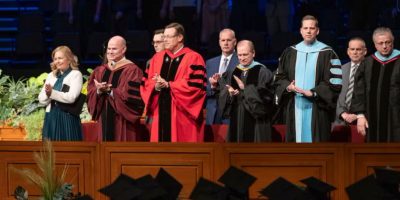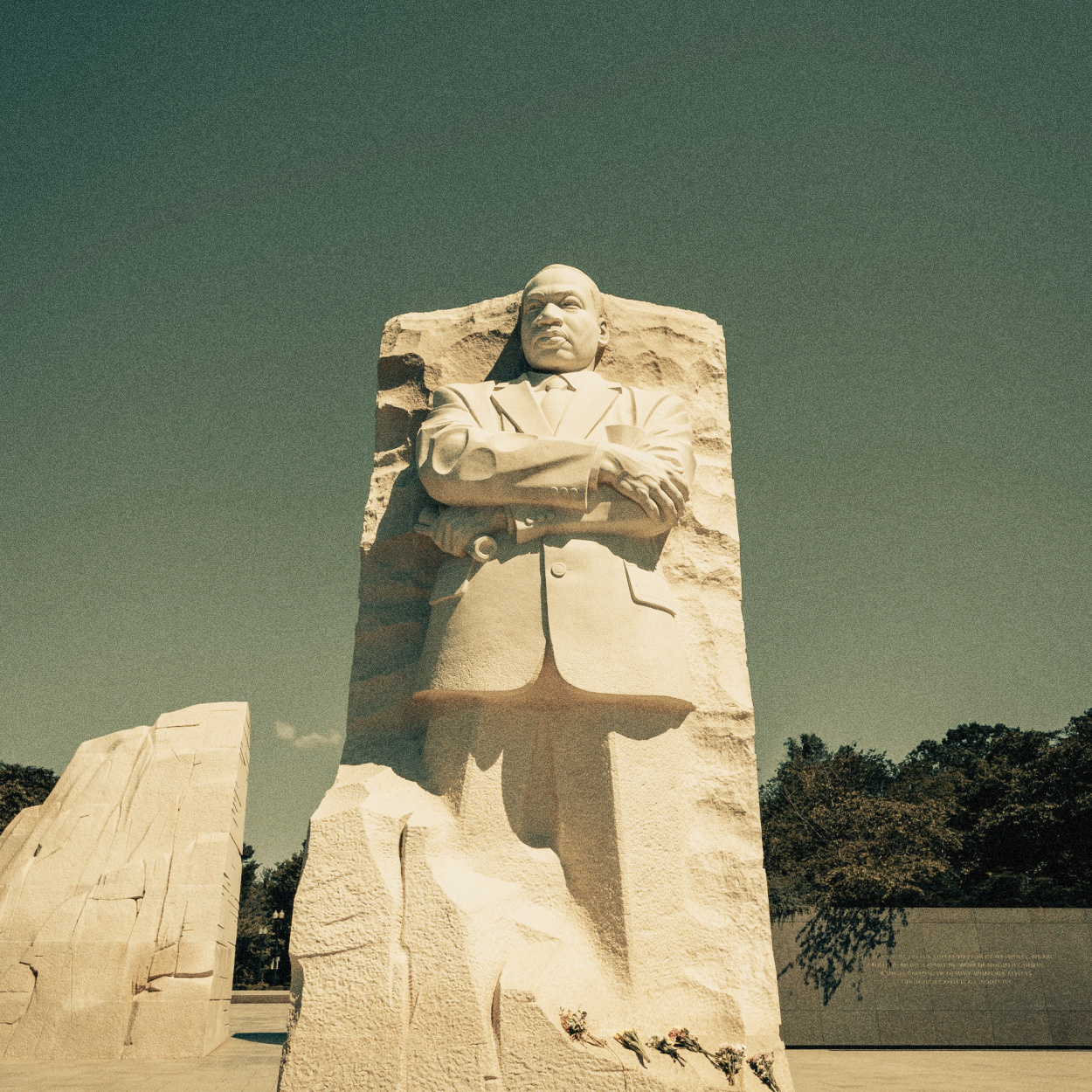Deciding to serve a mission can be one of the biggest decisions in a young Latter-day Saint woman’s life, and this decision can alter her life trajectory in profound ways. Missionary service is a long-standing tradition among members of The Church of Jesus Christ of Latter-day Saints. It is a spiritually, mentally, and physically demanding experience. Most missionaries are motivated to serve because of deeply held religious beliefs, personal inspiration leading them to feel called to their work, and unselfish desires to serve others and make positive contributions. These are excellent motivations, and for many young women, they are decisive.
At the same time, it is worth exploring how serving a mission can impact a woman’s life. As the Church of Jesus Christ President Russell M. Nelson explains, “Good inspiration is based upon good information.” With that in mind, we recently wrote a research brief to distill for women facing this decision some of the ways missions often affect the missionary after the experience is over. While we know that the calculus behind the decision to serve a mission should not boil down to only considering tangible benefits and costs to a missionary, we believe it may be helpful for women to know more about how missions impact their futures as they consider this important decision.
Benefits to a Missionary
Missions can offer several personal, educational, and professional benefits to young women after they return. After returning, women say that missions offer a wide array of personal benefits, including opportunities to develop empathy, interpersonal relationship skills, courage, confidence, personal awareness, maturity, independence, and an increased ability to overcome challenges, to name a few. Some women also learn new languages. And even for women who don’t learn new languages, missions increase a woman’s view of the world, leading to greater racial and cultural acceptance. So, while no two mission experiences are alike, women tend to find the experience personally meaningful.
New research points to clear areas of academic benefit for women who serve missions. We recently conducted a study on college experiences of female returned missionaries at Brigham Young University and found that returned missionary sisters were 33% more likely to switch to a major with higher earning potential than those who did not take a break for a mission during their education. This may be due to women learning more about their abilities or having increased confidence. It may be due to new skills learned as a missionary that expand possibilities when they return to college. Whatever the causes for women often moving to new majors, it has long-term consequences as it opens future options.
Women who serve missions also have slightly higher GPAs and take more credits per semester compared to women who do not serve missions. And among women who struggle academically, women who served missions were 19% more likely to be accepted into competitive academic programs like business than those who did not serve missions. Missions may be a way that women set themselves apart as they gain strengths not reflected in test scores or grades alone.
Missions for women have professional benefits. Given that much of the professional gains likely come through developing soft skills, less is known about this area. Women develop skills in interpersonal communication, problem-solving, and grit, which are all helpful in work settings and can help women succeed in career endeavors. Our research highlights the value of choosing a major with higher earnings potential to prepare women for financial stability later in life. Whether through tangible or intangible channels, missions likely help women in their careers, educational endeavors, and personal lives.
Obstacles for Returning Missionaries
Latter-day Saints are not strangers to encountering obstacles and difficulties in serving others and following Jesus Christ. Therefore, it may not be surprising that our research on the effects of missions on women’s academic outcomes finds some drawbacks as well. For many women who choose to serve missions, the costs are well worth the benefits of personal growth, relationship building, and opportunities to help others. Nonetheless, it is important to think through the drawbacks.
A salient cost of mission experiences is the monthly price tag. The fact that women serving missions still have regular expenses while not earning money for 18 months is a well-known obstacle and one that women and their families should be prepared for. Women also experience a related opportunity cost because they forgo education, working, or other personal endeavors for 18 months. Interestingly, returned missionaries express that making personal and financial sacrifices to serve a mission can sometimes actually enhance the experience.
The obstacles women encounter upon returning from missionary service are less salient. Past research shows that time away from higher education reduces the likelihood of students returning and completing degrees. In our research, specifically looking at female BYU students returning from missions, we find that this obstacle is not as prevalent. Of those we studied who served missions, 96% returned to BYU following their mission. Due to mission and semester timing, some women do experience a one-semester delay in re-enrolling, which also delays graduation.
The larger obstacle for the women we studied was completing their college degrees after returning to school. We find that women who served missions were 10% less likely to graduate in eight years compared to women who did not serve missions. Since this potential cost does not immediately follow a return from a mission, it can be hard to factor into decisions and plans early on.
Benefits and Costs Taken Together
The experiences of many female missionaries depict a pattern of missionary service coming with benefits and costs, pros and cons to them personally. Laura Kreutzer, a BYU alumna who graduated in Family Life with an emphasis in Human Development, found that her mission experience significantly influenced her life and education. Of her mission to Birmingham, England, she recounts, “I got used to relating to people that I had very little in common with, which is an important social skill.” Upon returning to BYU after her mission, she also noticed increases in courage, emotional maturity, and tenacity that helped her better weather the stress and demands of college.
Post-mission education was not without challenges for Kreutzer. Despite meeting with career advisors, she struggled to find internship opportunities. She describes, “I found it extremely difficult to get situated in a major headed towards a career.” Kreutzer’s experience sheds light on the struggle female returned missionaries may face in harnessing the skills they have developed toward graduation and employment.
Strategies for Succeeding as a Returned Missionary
Based on the personal, educational, and professional benefits of serving a mission, as well as the obstacles returning missionaries face, we suggest three strategies to help women succeed when they return. In each area, loved ones, leaders, administrators, and counselors of these women can also provide support and guidance.
1. Before leaving school or other training, women should make firm plans about how and when to return to higher education or other training endeavors after mission experiences. Family members and college and university advisors can encourage and support women in these plans.
2. Women returning from missions should recognize that they have unique skills, added confidence, and a broader understanding of themselves and the world. This may alter the educational or career path they will take. Women should feel empowered to take advantage of new opportunities, such as changing their majors or applying to competitive programs. University and career counselors can guide women in how to talk about mission experiences in terms of their abilities, interests, and skills that are applicable to coursework and employment.
3. Women returning from missions should find strong support systems that will continue beyond the first semester or year. Family, Church leaders, and college and university advisors of returned missionary women can be aware that these women may need additional support and flexible options to ensure they can continue to make progress toward graduation. This support should be extended even multiple years after women return home.
Ultimately, choosing to serve a mission is a significant and personal decision for young Latter-day Saint women. Each woman will have a unique and often life-changing experience. As Kreutzer related, she “developed a closer relationship with Heavenly Father and Jesus Christ, which improves every other area of life.”
Our research demonstrates that serving a mission also shapes women and their future educational and career outcomes. While not the main reason for serving a mission, these findings may be important for women to consider when choosing to go on a mission and when looking to find meaning in mission experiences.

















